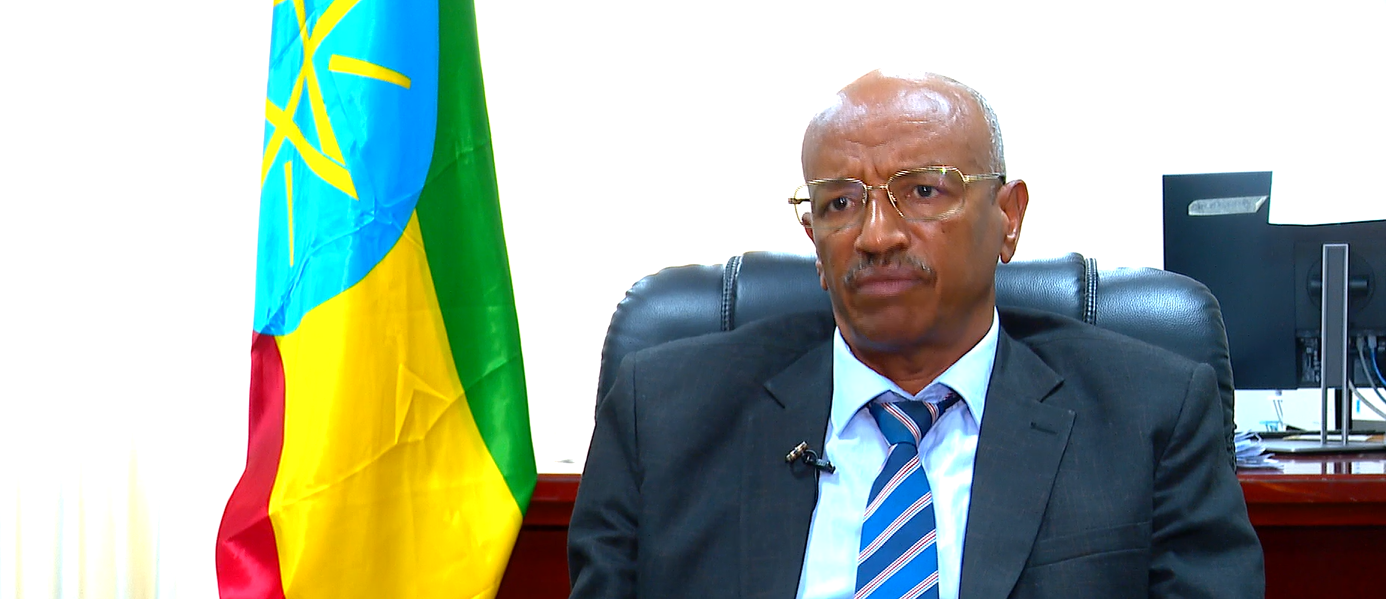Securing Food Sovereignty Not Just Agricultural Goal, But Fundamental Pillar to Nation's Security - ENA English
Securing Food Sovereignty Not Just Agricultural Goal, But Fundamental Pillar to Nation's Security

Addis Ababa, April 26, 2025 (ENA) --- Securing food sovereignty is not just an agricultural goal, but a fundamental pillar of Ethiopia's national security, National Disaster Risk Management (NDRMC) Commissioner Shiferaw Teklemariam said.
In an exclusive interview with ENA, the commissioner emphasized the need for a proactive and robust disaster risk management that realizes the nation's aspiration for food sovereignty by moving beyond mere crises response.
According to him, the commission is deeply engaged in achieving this critical objective by proactively mitigating the impacts of various hazards.
Drawing attention to the multifaceted nature of food sovereignty, Shiferaw elaborated that it signifies not only producing what the nation consumes but also owning the entire food system – from production and distribution to consumption patterns, free from undue external influence.
‘Bounty of the Basket’ national initiative is a significant step towards realizing this vision, where Ethiopia identifies what it produces, consumes its own harvest, and possesses the capacity to distribute surplus, thereby asserting control over its food supply chain, he added.
Emphasized further the intrinsic link between food sovereignty and national dignity and freedom, the commissioner noted that a nation that relies on others for its sustenance compromises its independence.
To avert this, Ethiopia has been taking several key initiatives spear headed by the government to bolster food sovereignty, primarily focusing on the agricultural sector.
These include ‘Bounty of the Basket’ cluster farming, and extensive development in fruit and vegetable cultivation.
Furthermore, the commissioner stressed the necessity of establishing robust mechanisms for humanitarian assistance to support affected populations during such times, highlighting the concept of "humanitarian support sovereignty."
This necessitates preparedness both in times of surplus and deficit, he said.
For the commissioner, the key element in achieving humanitarian support sovereignty, is establishing a strategic grain reserve.
The nation currently produces approximately 600 million quintals of grain annually. The target is to maintain a reserve of 2 million metric tons, specifically for emergency and humanitarian needs.
Significant progress has been made in this regard, with regions already holding around 1 million quintals in reserve from the previous harvest season, representing 40 percent of the total required reserve, he revealed.
With continued momentum, Ethiopia could achieve full national strategic grain reserves by the end of next Ethiopian year, according to the commissioner.
To effectively manage humanitarian response, the NDRMC is focusing on organizing storage facilities by establishing warehouses at regional and woreda levels.
Shiferaw believes that expanding rapid response capabilities to address various catastrophic occurrences like earthquakes, landslides, and floods is also a priority.
He said 9 regions have demonstrated self-reliance in humanitarian support, requiring no assistance from the federal government, while the other regions established disaster response funds.
The commissioner concluded by emphasizing that by proactively managing disaster risks, the nation can significantly diminish its reliance on external food aid, paving the way for a more secure and prosperous future for all Ethiopians.